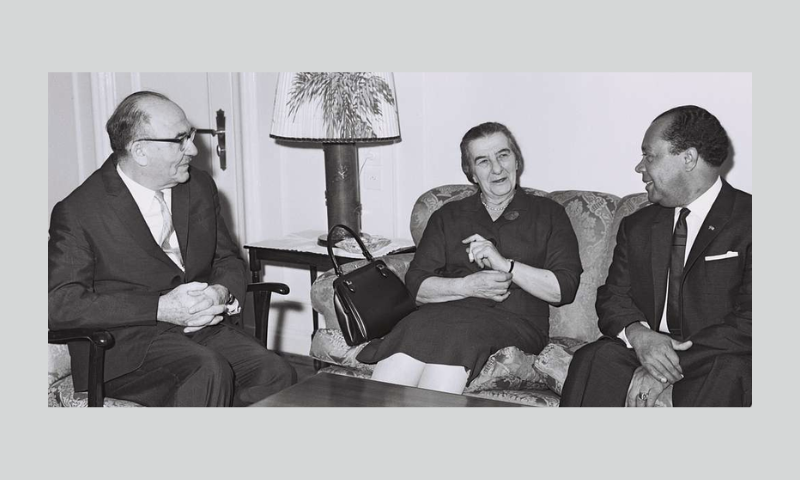Andrew Silow-Carroll
Jerusalem Post, Aug. 26, 2023
“… the feeling that we were going to lose that war was very strong, very deep. The change from the sense of security and the confidence to the surprise of the war was great. So she became the scapegoat. People will simply blame the leader when things don’t go well.”
“Golda,” the new biopic starring Helen Mirren as Israel’s first (and so far only) female prime minister, focuses on the few terrible weeks late in her life that would in some ways seal Golda Meir’s legacy.
On Yom Kippur 1973, Egypt and Syria led a sneak attack on Israel that, in its stealth and fury, erased the euphoria that followed Israel’s lightning victory six years earlier in the Six-Day War.
The public blamed Meir for Israel’s lack of preparation; she resigned in 1974 and her reputation, particularly in Israel, has never really recovered.
For Meir’s defenders, her legacy has often been obscured by misogyny and condescension. Biographers like Francine Klagsbrun, in 2017’s “Lioness,” and Deborah Lipstadt, whose “Golda Meir: Israel’s Matriarch” was published this month, argue for a fuller, more generous assessment of Meir.


